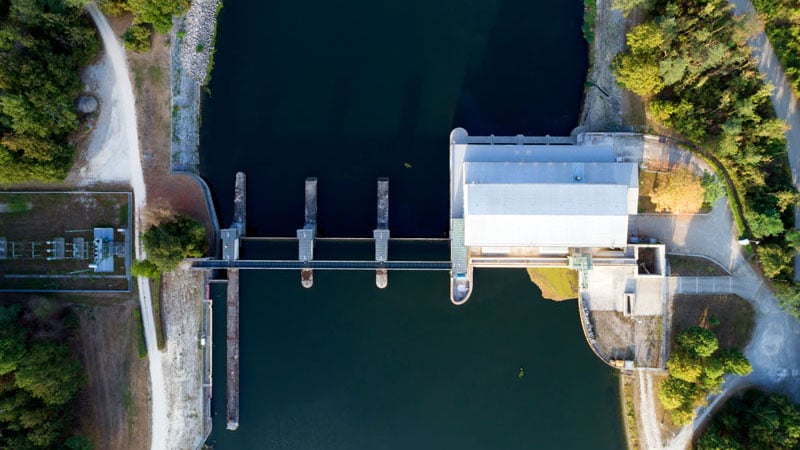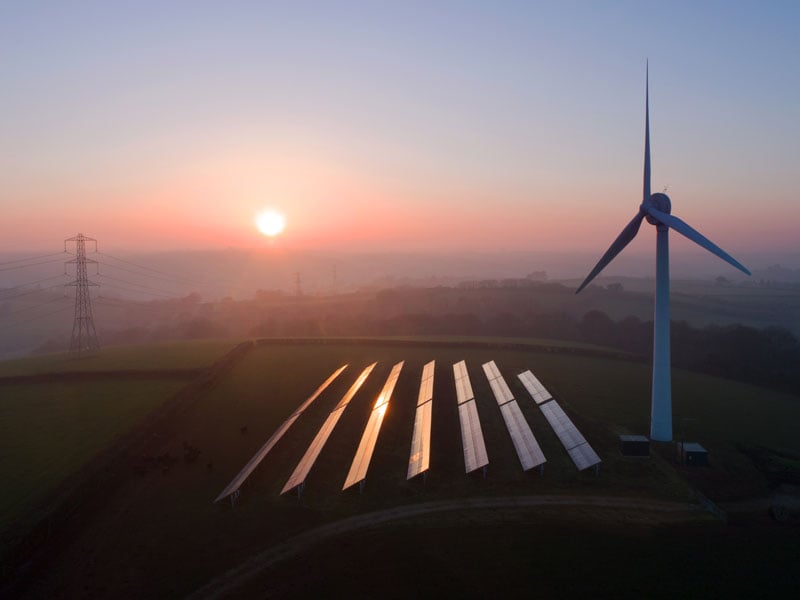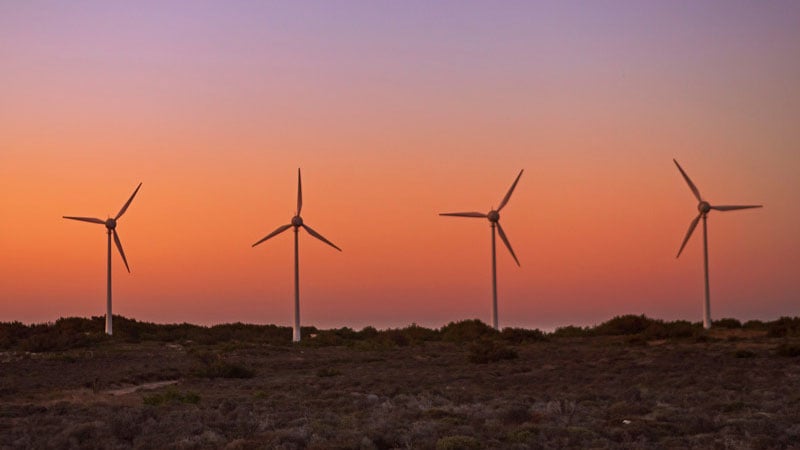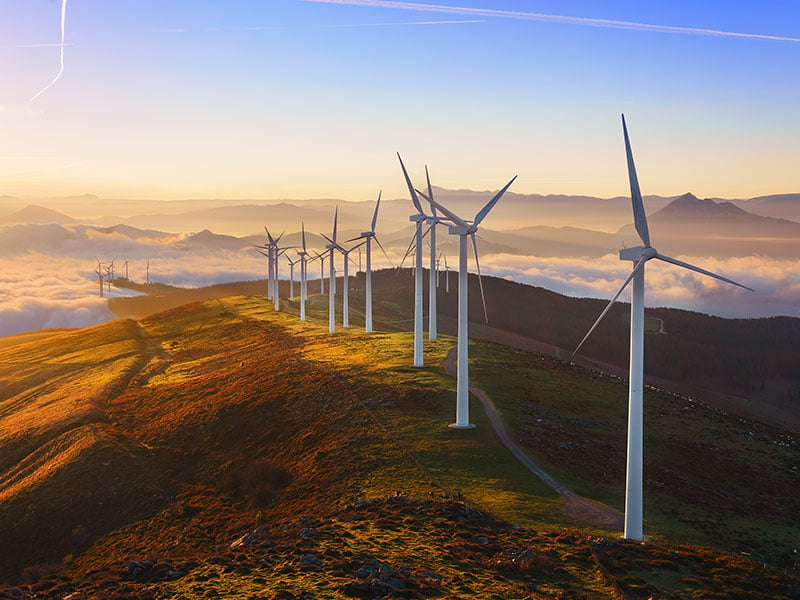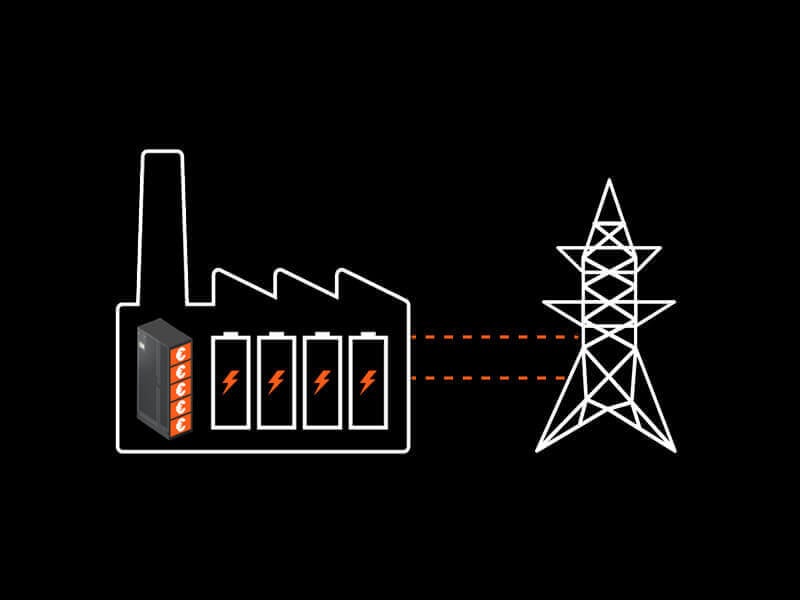World leaders had a lot to discuss and agree to act on at the recent international COP26 conference on climate change.
Keeping the rise in the earth’s temperature to well below two degrees Celsius, and ideally 1.5°C, will require a major collective effort and changes to all aspects of our lives, economies, and societies.
Creating a sustainable future for our planet will only be possible if we improve energy efficiency. And as our lives become increasingly reliant on digital technology for video conferencing when working from home, streaming TV, film and music entertainment services, the IT industry has a crucial role to play in the future of our planet.
Global internet traffic surged by more than 40% in 2020 during the Covid-19 pandemic, according to the International Energy Agency due to increased video streaming, video conferencing, online gaming, and social networking.
Most of the world’s Internet Protocol (IP) traffic goes through data centres. And with the fifth-generation (5G) of mobile networks, and data-intensive technologies such as artificial intelligence, the exponential rise in our demand for data is set to continue for at least the next few decades.
The impact on energy use and our climate will partly depend on the energy efficiency of data centres and their IT equipment.
Data centres account for around 1% of global electricity demand, according to the International Energy Agency. Fortunately, data centres have been able to offset much of the surge in demand for their services by improving the energy efficiency of their servers, infrastructure and through vast hyperscale data centres.
Vertiv is working to address the world’s significant demand for data and critical digital infrastructure that supports it, and, at the same time, mitigate the environmental impacts from such infrastructure. Energy efficiency can seem like a dry and even distant concept, so let’s recap what it means in plain language. In mathematical terms, it is the level of performance that uses the least amount of input energy to achieve the highest amount of output energy.
Of course, energy is present in various forms. It is sometimes difficult to establish the correct efficiency levels for a complex piece of equipment. So, let’s consider an everyday piece of equipment such as the refrigerator, which has an electrical input and a cooling output while producing heat as a waste product. If that refrigerator is within a normal domestic environment, then the heat output is helping heat the room that it’s in. Is that waste? During a UK summer, yes, but in the winter, no.
Governments are eager to encourage businesses and consumers to produce and buy more energy-efficient products and services.
One common nudge is through the tax system. Over the last few years, for example, the British government has offered tax incentives Enhanced Capital Allowances for companies that buy and install the most energy-efficient equipment.
However, this arrangement was not entirely successful because of the relationship between building developers, consultant engineers and building contractors.
The tax relief scheme could only be claimed by the user of the equipment, who was not necessarily the buyer of the equipment. So, contractors were driven to find the lowest cost solution for a project, rather than the most efficient equipment, as they were not the user of the equipment and were therefore not entitled to the tax relief.
It's interesting to now see that Carbon Trust, a UK not-for-profit organisation that advises businesses, governments and organisations on sustainability, has recharged the scheme. The new scheme is about good practice for energy efficiency rather than tax relief.
The UK’s Department for Business Energy and Industrial Strategy has asked Carbon Trust to recommend over 10,000 energy-saving products to raise awareness of businesses and the public sector to buy better. The most energy-efficient products are detailed in the ever-expanding “Energy Technology List” database.
We are pleased that Vertiv products − Uninterruptible Power Supplies (UPS) and Heating, Ventilation and Air-Conditioning (HVAC) equipment − are included in the list.
Being mindful of product design, development, use, and disposal are important to the longevity of our industry.
For example, Vertiv is lead sponsor of the Sustainable Digital Infrastructure Alliance, a non-profit network of more than 65 organisations across Europe and beyond, working to catalyse the transition to more efficient digital infrastructure. We are also a member of the European Data Centre Association (EUDCA), which sets targets that put the cloud and data centre industry on a path to meet the European Commission’s goal for climate-neutral data centres by 2030.
And some data centre operators can, and are looking ahead to, being good grid citizens. Earlier this year, Vertiv launched the new grid-interactive Liebert® EXL S1 UPS which is on the Energy Technology List.
This solution allows you to use the UPS as an active participant in the smart grid and maximise the use of the energy storage system to generate new revenue streams as well as cost-saving opportunities.
Learn more about Vertiv products accredited by the Carbon Trust Scheme, under the Energy Technology List:
Uninterruptible Power Supplies (UPS)
Heating, Ventilation and Air-Conditioning (HVAC) Equipment
Read more from Vertiv experts on energy management and other sustainability topics in our Eco-Insights Blog Series.




